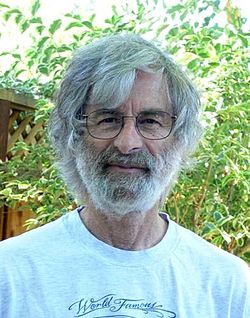Leslie Lamport | |
|---|---|
 | |
| Born | February 7, 1941 New York City, U.S. |
| Education | |
| Known for | |
| Awards |
|
| Scientific career | |
| Fields | Computer science |
| Institutions | |
| Thesis | The analytic Cauchy problem with singular data (1972) |
| Doctoral advisor | Richard Palais [1] |
| Website | lamport |
Leslie B. Lamport (born February 7, 1941) is an American computer scientist and mathematician. Lamport is best known for his seminal work in distributed systems, and as the initial developer of the document preparation system LaTeX and the author of its first manual. [2]
Contents
- Early life and education
- Career and research
- Distributed systems
- LaTeX
- Temporal logic
- Awards and honors
- See also
- References
- External links
Lamport was the winner of the 2013 Turing Award [3] for imposing clear, well-defined coherence on the seemingly chaotic behavior of distributed computing systems, in which several autonomous computers communicate with each other by passing messages. He devised important algorithms and developed formal modeling and verification protocols that improve the quality of real distributed systems. These contributions have resulted in improved correctness, performance, and reliability of computer systems. [4] [5] [6] [7] [8]